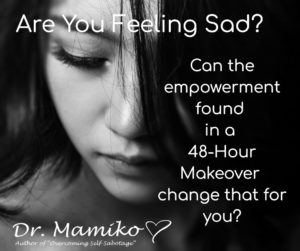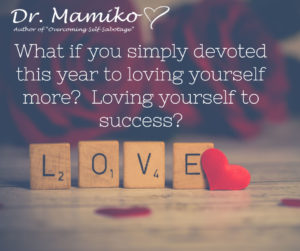 No one should have to be held captive to the effects of shame! When the clouds of shame are lifted, you can actually walk down a path of becoming EXTRAordinary. Today is Martin Luther King Day, where we have the privilege to honor a great man, who held a dream of racial equality and people living in love, peace, and acceptance. His message is even more crucial today as many people in our country are reverting backward… once again expressing prejudice and racism. I find consolation in Dr. King’s concepts; they mirror my belief that love is a verb, and that it calls on us to Act on Love. You will see the commonalities as I share my personal story with you. Find enlightenment in my story. Look not only beyond your own shame, but look at how easily and unintentionally you can shame others. Understand the effect your actions have on them, and most importantly—how to prevent these practices and overcoming shame.
No one should have to be held captive to the effects of shame! When the clouds of shame are lifted, you can actually walk down a path of becoming EXTRAordinary. Today is Martin Luther King Day, where we have the privilege to honor a great man, who held a dream of racial equality and people living in love, peace, and acceptance. His message is even more crucial today as many people in our country are reverting backward… once again expressing prejudice and racism. I find consolation in Dr. King’s concepts; they mirror my belief that love is a verb, and that it calls on us to Act on Love. You will see the commonalities as I share my personal story with you. Find enlightenment in my story. Look not only beyond your own shame, but look at how easily and unintentionally you can shame others. Understand the effect your actions have on them, and most importantly—how to prevent these practices and overcoming shame.
I came to the United States from Japan when I was seven years old. At that time, I looked different than my peers and didn’t speak or write English. Just because of my appearance alone, I was teased and bullied. With great frequency, kids made fun of me, made gestures about my slanted eyes, and called me names. Unfortunately, you cannot change your race, your features, or the color of your skin. Through no fault of my own, the bullying caused me to be ashamed of my appearance and ethnicity.
Sure I felt different…I was different! The shame of my ethnic origins and early struggles with school filled me for years—following me from childhood into being an adult. I wasn’t equipped to understand shame is different from guilt.; you don’t need to do anything wrong to feel ashamed. Over time I came to understand shame is a feeling of being less than, inferior, or different—and is typically caused by the actions of others.
As I reflect back, these childhood years were filled with anguish. I desperately wanted to be accepted, liked, and to be “one of them.” In my primitive ways to gain acceptance and to blend in, I disowned my Japanese heritage and even changed the pronunciation of my name to sound softer and more Anglicized. Yes, I became one of the “bananas” you may have heard about: yellow on the outside, white on the inside!
Early on I began to intuitively choose people who could become good friends and become an ally. I focused on those who were welcoming of me with their direct eye contact and smiles. I then became a master of developing conversations and establishing relationships quickly. It was simple: I was friendly, engaging, loyal, and became an excellent listener who provided emotional and physical support to others.
Later on, I learned how to depersonalize. This is a way to deflect and to know that the comments, actions, and situations are NOT about you! Rather, it is about the other person and where he/she is coming from. Their putdowns and slurs—although directed at you—are, in essence, more so about them! This ability to depersonalize helps provide a glimpse into who or what the other person is.
A confident person who can love and accept himself or herself is one who can be encouraging and warm toward others…no matter the race or physical appearance and attributes reflected outwardly. Being too tall, short, fat, skinny, unathletic, or disabled – in the end, it doesn’t matter. Ultimately… the choices are yours: to buy into the shame or move beyond it. When you- recognize and remember that when another person is compelled to call you names, demean, and harass you… the behaviors provide insights into insecure feelings within themselves.
A person who can accept others, or at least maintain neutral opinions, withholds judgment and criticism. To develop this level of acceptance requires learning and practicing the Art of Conscious Loving™. Conscious loving is easy to recognize; it is the ability to look at situations—and other individuals—through the eyes of acceptance and love—and allow yourself and others the benefit of the doubt. When you have attained this skill, you can begin to see beyond what you may think another person may lack; or how they find you lacking. Since none of us is perfect, and make mistakes, when we embrace Conscious Loving, we give ourselves permission to be imperfect, to be aware, and to live in the present. It is in the present where you can quickly correct the thoughts, beliefs, feelings, and actions that provide support—and a discover a template for the best results in your life journey.
Bear in mind that your actions, comments, and even your thoughts affect you and others in many ways. LIVE today in honor of Martin Luther King; as you stop and ACT on Love towards yourself and others. Stop and consider moving beyond your own sense of shame; support others to ensure you do not add to the layers of shame that far too often pile themselves upon us.
Mamiko Odegard, Ph.D., president of Biz Life Success, Inc., has served over 30 years as a psychologist and life and business coach, who helps you overcome shame, learn to ACT on love, and helps you to be Irresistible, Invincible, and Iconic. She is an international best-selling author of Daily Affirmations for Love and Overcoming Self-Sabotage and Strathmore’s Worldwide Who’s Who Professional Coach of the Year.
Mamiko Odegard, PhD
Success@DrMamiko.com








